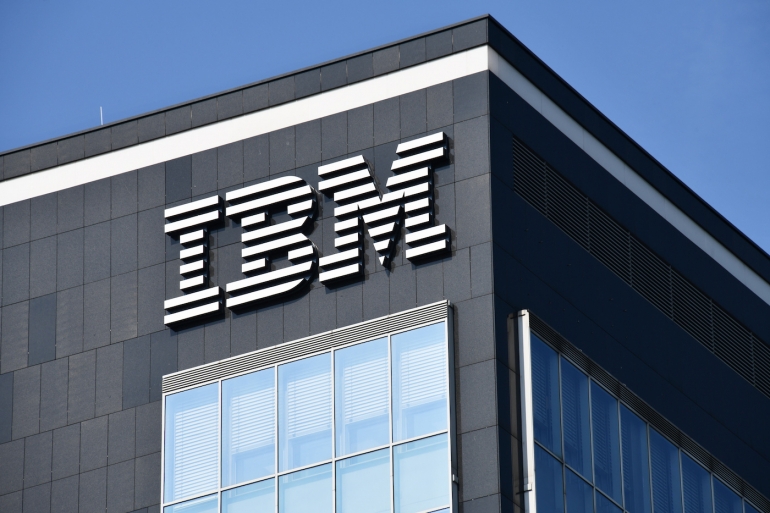IBM is the largest American multinational technology and consulting business headquartered in Armonk, New York, with over 350,000 workers servicing clients in 177 countries.
IBM is a multinational technology firm that specializes in hardware, software, cloud computing, and cognitive computing. The giant was previously known as Computing-Tabulating-Recording Company after being founded in 1911 by Charles Ranlett Flint post the amalgamation of four enterprises in New York State.
Since 1951, IBM has had a presence in India. IBM India has grown rapidly since its start, with regional headquarters in Bangalore and offices in 20 locations. Across the Indian information technology industry also, IBM India has clearly established itself as a leader.
Innovation is at the heart of IBM’s strategy as a leading provider of cognitive solutions and cloud platforms. This is reflected in the comprehensive end-to-end solutions provided to clients, which include everything from software and hardware to infrastructure, cognitive, cloud, and consulting services. IBM provides deep business process and industry experience to assist clients in addressing challenging business and technology difficulties. Advanced analytics, research capabilities, deep IT infrastructure knowledge, and a demonstrated ability to implement enterprise solutions to offer bottom-line value to organizations and governments throughout the world round out this package.

Logo and the Story Behind
Paul Rand, an acclaimed American graphic designer, created the current IBM logo in 1972. He recognized the importance of a distinctive logo in a company’s success—the primary means of differentiating one product from another.

Founders and Important Team Members
The founders of IBM are thought to be Charles Flint and Thomas Watson Sr. IBM’s Chief Executive Officer is Arvind Krishna, an IIT Kanpur alumnus is a leading corporate executive who has been creating havoc across the Indian-American technology society.
Since April 2020, he has been heading the operation of IBM as the CEO, succeeding Ginni Rometty. Krishna joined IBM’s Thomas J. Watson Research Center back in 1990 and rose through the ranks to senior vice president in 2015. He has managed the development and expansion of new markets for IBM in artificial intelligence, cloud, quantum computing, and blockchain as a business executive and technologist. He’s also been a key contributor to the creation of revolutionary IBM products and solutions based on these new technologies.
Over his 30-year old career at IBM, Arvind led a series of bold transformations and delivered proven business results. He most recently led Red Hat’s $34 billion acquisition – the largest software transaction in history – which has defined the hybrid cloud business.
Revenue
- Revenue of $16.7 billion shot up 6.5 percent, up 8.6 percent at constant currency (including about 3.5 points from incremental external sales to Kyndryl)
- Software revenue up 8 percent, up 10 percent at constant currency (including about 5 points from incremental external sales to Kyndryl)
- Consulting revenue was up 13 percent, up 16 percent at constant currency.
- Infrastructure revenue flat, up 2 percent at constant currency (including about 5 points from incremental external sales to Kyndryl)
- – Hybrid cloud revenue:
- — Fourth Quarter: $6.2 billion, up 16 percent, up 18 percent at constant currency
- — Full Year: $20.2 billion, up 20 percent, up 19 percent at constant currency
Business Model
In the realms of mainframe, nanotechnology, personal computers, digital data management, virtualization, and cloud services, IBM is committed to innovating and developing. IBM’s business model is around offering software that enables large companies to integrate their diverse software systems and improve their IT efficiency.
So, IBM’s business is channeled through five main business segments, which are:
Global Technology Services (GTS) – Most amazing firms, especially those with a significant number of employees, must ensure that they offer a wide range of financial services, as well as other industries such as retail, telecommunications, healthcare, and a variety of other services.
Global Business Services (GBS) – The GBS offers several fantastic services, which can undoubtedly be considered a significant benefit, and they are:
- Consulting
- Management
Services for Software – IBM also provides software assistance to those that require it. There are certain operating systems that are available to the public as well.
Hardware and System Services – To be honest, there are some hardware services that are included in IBM’s business model, and these are the services that will aid customers the most on the hardware front.
Global Investment – When it comes to the greatest financing alternatives, there is simply no doubt that IBM’s business strategy is unquestionably the greatest option. That is because the lease, installment payment options, and loan financing alternatives are the ones that are handled in this regard and in the best possible way.
Growth
IBM’s growth has resumed in almost all of its business segments. IBM’s revenue in 1995 totaled about $72 billion, up more than 12% over 1994. Gerstner (ex-CEO) and his crew deserve a lot of credit for this. Profitability also increased by 42%. And stockholders reaped the benefits: earnings per share increased by 44%. Even the mainframe market, which was IBM’s lifeblood in the 1970s and 1980s but was declared dead by critics in the early 1990s, has revived, with new mainframe systems bringing in significant profit margins.
Future Plans
IBM’s top executive, Arvind Krishna, stated that the company’s goal is to accelerate its future and growth strategy.
He said that “We’re focused on accelerating our growth plan and capitalizing on the $1 trillion hybrid-cloud markets,” he continues. Two things are becoming increasingly evident as we work toward this aim. For starters, client demand for our capabilities and skills has increased dramatically. Second, we’re seeing a divergence in client buying needs for application and infrastructure services. As a result, we’ve decided that our GTS segment’s managed infrastructure services business would become an independent company, which we’ll call “NewCo” at first. We anticipate that the new company will be established by the end of 2021. IBM will hone down on its open hybrid cloud platform.”
Like this post? Checkout our Brand Stories Section






No Comments